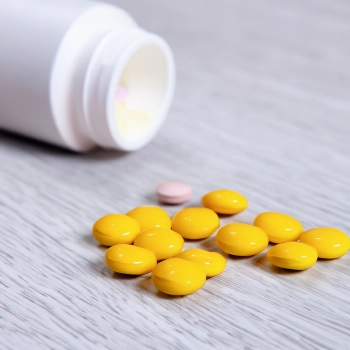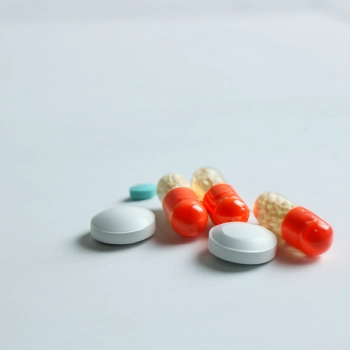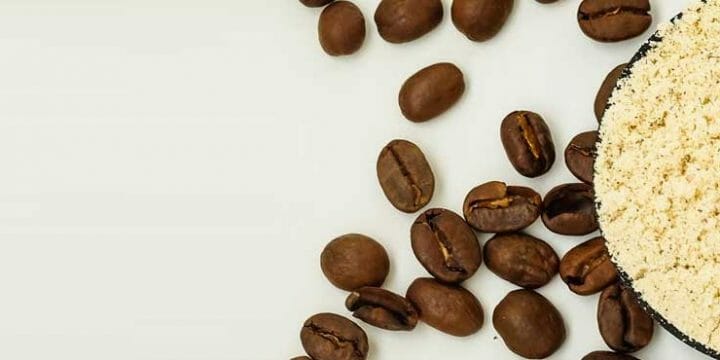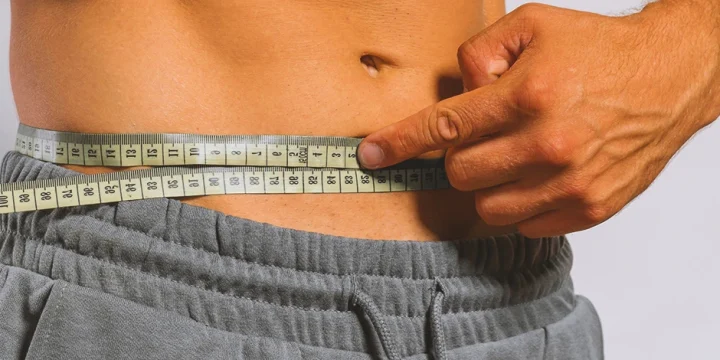Several of my athlete friends have combined a pre-workout supplement with intermittent fasting protocols to accelerate their weight loss and fitness progress.
Yet, they've encountered numerous online discussions with conflicting opinions regarding whether a pre-workout supplement breaks a fast or not.
Do all supplements disrupt a fast, or does it depend upon the ingredients?
As a Certified Professional Trainer, I’ve done thorough research to finally resolve the controversy. Read on and find out.
Quick Summary
- Taking pre-workout during fasting depends on the ingredients; those with sugars or amino acids can break the fast, while caffeine or creatine-based ones typically won't.
- Ingredients like sugar, artificial sweeteners, and amino acids in pre-workouts can trigger an insulin response, potentially interrupting the fasting state.
- According to the Journal of the International Society of Sports Nutrition, certain pre-workout ingredients like creatine can boost energy levels and enhance muscle gain and exercise capacity during high-intensity gym sessions.
- In my opinion, careful selection of pre-workout supplements, favoring those without fasting-disruptive ingredients, is vital for athletes and fitness enthusiasts who practice intermittent fasting.
Does Taking Pre-Workout Break Your Fast?

The answer to the question: “Does a pre-workout break your fast?” isn’t that straightforward.
Some pre-workouts may disrupt fasting due to their ingredients, like carbohydrates or proteins. It's important to examine the specific composition of a pre-workout to align it with your fasting goals. This includes analyzing popular brands for their ingredient lists.
Additionally, understanding how pre-workouts interact with different fasting methods, such as water or juice fasts, is crucial. For those seeking natural alternatives, incorporating certain fruits or supplements can provide energy without breaking the fast.
So, let’s dive into the most common pre-workout information, health and fitness benefits, and the way they affect intermittent fasting.
3 Ingredients That Disrupt Fasting

1. Sugar, Artificial Sweeteners, and Other Carbohydrates
Pre-workout supplements with added sugars or artificial sweeteners can trigger an insulin response, breaking a fast. Regular sugar immediately activates insulin and metabolism, ending the fasting state. Personal experience confirms this effect.
Although some studies published in the British Journal of Nutrition suggest low-energy artificial sweeteners may not impact insulin levels as much, other research indicates even zero-calorie sweeteners can cause insulin spikes, disrupting a fast [1].
Although this issue is hotly debated in scientific circles, many artificial sweeteners, flavors, food dyes, and similar content variations used in pre-workout supplements are carcinogenic, can disturb your gut microbiome, and cause various health problems, which works neither in favor of intermittent fasting nor your overall health benefits [2] [3] [4].
So, it’s wise to avoid any sugars, carbs, artificial or “natural” sweeteners, thickening agents, preservatives, and additives to make the most out of your intermittent fasting regimen.
2. Whey Protein
Pre-workouts that contain whey protein will also mess up your fasting because whey protein contains calories. I once tried a pre-workout with whey protein during my fast and realized it wasn’t the best choice. The caloric content interfered with my fasting state, a hiccup I was keen to avoid in the future.
As you probably know, it isn’t allowed to consume anything with more than 40 or 50 calories while intermittent fasting if you don’t want to break it.
3. Amino Acids

Almost all pre-workout supplement blends on the market contain one or another amino acid type. They contain a certain amount of calories.
I’ve experimented with various pre-workouts and noticed those containing amino acids can be a bit tricky during a fast due to their caloric content. It’s a detail I now pay close attention to when selecting my supplements.
Moreover, proteinogenic amino acids are proven to spike your insulin level, activating protein synthesis pathways in your brain and signaling that you’ve consumed food, based on the study published in PubMed [5].
Adding branched-chain amino acids (BCAAs) like leucine, isoleucine, and valine to pre-workout supplements offers benefits such as stimulating muscle protein synthesis and energy production. This can increase muscle growth, reduce muscular fatigue, and enhance athletic performance. Incorporating these amino acids into your routine is key for muscle recovery and achieving fitness goals.
Proteinogenic amino acids include the following essential and non-essential ones:
- BCAA (leucine, isoleucine, and valine)
- Lysine
- Threonine
- Phenylalanine
- Histidine
- Methionine
- Tryptophan
- Arginine
- Tyrosine
- Alanine
- Cysteine
- Glycine
- Asparagine
- Serine
- Proline
- Glutamine
- Glutamic acid
- Aspartic acid
So, consuming these substances would technically kick you out of a fasted state, ruining your intermittent fasting gains such as gut rest, metabolism boost, autophagy, etc.
However, it’s not all black and white.
Even though you should avoid the above amino acids while intermittent fasting, you can still benefit from non-proteinogenic supplements like:
- Beta-Alanine
- Creatine
- Betaine
- Carnitine
- D-aspartic acid
They won’t break your fasting as they don’t contain any calories, macronutrients, artificial sweeteners, flavors, etc., that cause an insulin response.
Even better:
They may help you feel less tired during intense workouts and enhance your exercise performance and capacity.
4 Ingredients That Won't Break a Fast

1. Caffeine
Caffeine, found in many pre-workouts, can be consumed during fasting without breaking it, offering benefits like increased energy and focus [6] [7].
During my fasting days, I've always relied on caffeine. It's in most of my pre-workouts, and I've found it gives me that energy boost without breaking my fast.
Even better - You can reap a lot of other benefits of caffeine, such as:
- Increased energy levels
- Enhanced oxidative stress induced by training
- Enhanced physical performance
- Improved endurance
- Better focus and alertness
- Curbed appetite
- Faster calorie and fat burn
- Antioxidant effects
- Increased effectiveness of autophagy (due to faster removal of glycogen stores from your blood and metabolizing fatty acids faster)
2. Creatine
This is another ingredient the majority of available pre-workout supplements contain.
It’s calorie-free and doesn’t raise your insulin levels, so you can safely use it as it won’t break your fast.
I’ve been a fan of creatine for years. It’s in most of my pre-workouts, and I love that it boosts my energy without breaking my fast, thanks to its calorie-free nature.
In addition, it can help boost your energy levels, providing more strength to ensure muscle gain and better exercise capacity in the next high-intensity gym session, according to the Journal of the International Society of Sports Nutrition [8].
3. Beta-Alanine
Beta-Alanine aids in building muscle mass by boosting your level of carnosine. The tingling effect you may feel after drinking a pre-workout supplement comes from this substance.
“Beta-alanine is commonly used by mouth for improving athletic performance and building lean muscle mass in younger adults, and improving physical performance in elderly adults.”
- WebMD
Consuming it also doesn’t mess up with any intermittent fasting protocols.
4. Citrulline Malate
Plenty of pre-workouts contain Citrulline Malate, as well. It also doesn’t interfere with your fasting.
It works as a vasodilator, meaning that it improves your blood flow by increasing nitric oxide level. Consequently, your muscles get a better nutrient supply for better pump results.
FAQs
How Many Calories Will Break a Fast?
According to a general thumb rule, more than 50 calories will break a fast. Any intake below that will safely keep your body in a fasted state.
Will Lemon Water Break Your Fast?
No, lemon water won’t break your fast because it’s calorie-free and it doesn’t increase your insulin levels. What’s more, lemon water with sodium from Himalayan pink salt aids in detoxification and balancing the electrolytes in the body.
But we’re not talking about sweetened lemonade or caloric water with lemon or other flavors you can find in a supermarket, among other sports drinks.
Does Coffee Break a Fast?
No, black coffee doesn’t break your fast if you drink it unsweetened, in moderate amounts - one or two cups (240-470 ml) without any other added ingredients.
Does Green Tea Break a Fast?
No, green tea doesn’t break your fast unless you add honey, sugar, creamer, or milk to it.
Does Creatine Break a Fast?
No, creatine doesn’t break your fast as it contains no calories.
Can I Take a Fat Burner While Fasting?
Yes, you can take most fat burners while intermittent fasting as they shouldn’t contain anything that can break your fast.
References:
- https://www.cambridge.org/core/journals/british-journal-of-nutrition/article/sweettaste-receptors-lowenergy-sweeteners-glucose-absorption-and-insulin-release/FD76542E4E27715F92DD2B0BCF31483E
- https://www.scientificamerican.com/article/artificial-sweeteners-may-change-our-gut-bacteria-in-dangerous-ways/
- https://www.ncbi.nlm.nih.gov/pmc/articles/PMC4990242/
- https://www.ncbi.nlm.nih.gov/pmc/articles/PMC3772345/
- https://pubmed.ncbi.nlm.nih.gov/21512300/
- https://www.thieme-connect.com/products/ejournals/abstract/10.1055/s-2007-1021049
- https://pubmed.ncbi.nlm.nih.gov/23299767/
- https://www.ncbi.nlm.nih.gov/pmc/articles/PMC2048496/
About The Author
You May Also Like






